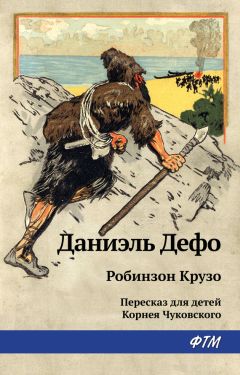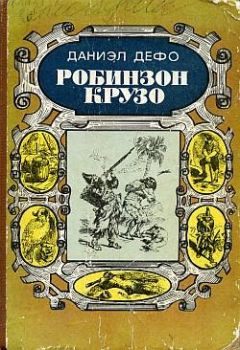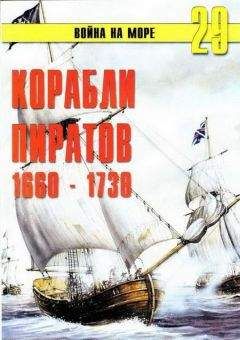Dewey Lambdin - The King`s Commission
"Well, how do you tell the difference, then?" Cashman demanded. "And what do you do, bring her a plucked chicken? Flip tuppence across the fire? Tell 'em to wash the mehtar's daughter?"
"The what?" Lewrie goggled.
"Sorry, I was in the East Indies once. It was a lot easier there, let me tell you. Cheaper too, if you like nautch girls with bums and legs like farrier sergeants," Cashman said irrepressibly.
"There's a lot of ceremony in village life," McGilliveray told them, sipping at small-beer, which was all he would allow himself. "At each ceremony, there's dancing in circles around a central fire, and all the unmarried women sort of cluster together and show off their finery. I shall point them out to you. If they fancy you, you'll know it right off. They run things, long as they're single."
"And if Indian men restrict themselves as you say, they must have to make up for lost time after they're married," Cashman said, grinning. "So if she's there, she isn't polluted, and if she fancies a tumble, she'll come over and flash her poonts?"
"It's a bit more subtle than that, Captain," McGilliveray said with a sigh of the truly long-suffering. "Believe me, you'll know."
"I should think it best if we forswore conjugal relations with the natives," Cowell said, a bit prim. "It would be easiest."
"Hardly possible, I'm afraid, sir," Alan stated. "You haven't seen my sailors a'rut." Or me, Alan qualified to himself. "And if the young unmarried females are so eager for it, I doubt a troop of saints could hold out for long."
"You'll have your rut, sir," McGilliveray snapped. "Speaking further of pollution, I adjure you and your men from making water into any body of water. Running water is sacred, you see, where some of our gods dwell. You don't piss in it, or spit into it, or pass excreta into it. No dumping of kitchen scraps, anything like that. You do that on dry land where it won't drain into running waters. Bury it."
"Well, we can go have a wash, can't we?" Cashman asked.
"Oh yes. In fact, if you don't wash daily, first thing in the morning, they'll look on you strangely. It's our way. But, never get downstream of a woman. It's best to conform to our customs for as long as you are with my people, to ease the negotiations, you see. With so many distinguished chiefs gathered together, the slightest upset can make them leery of the whole thing and then they'll not side with us."
"When in Rome, do as the Romans," Cowell suggested. "Now Mister McGilliveray, tell them about the missionary work among the Muskogean. I mind you said once back in London, with the bishop of Chicester as I remember, that only a few of your people have accepted the faith."
"I should be delighted to hear of it, sir, but I believe that Captain Cashman and I are already due on deck," Alan said, referring to his pocket watch. "Musket drill, you know. If you gentlemen shall excuse us? Please stay and indulge yourselves. You have but to ask of my man Cony."
"Jesus bloody Christ!" Cashman sighed after they had got on deck. "I've about had it with that blackamoor. Like being lectured to by a mastiff. A very unfunny mastiff, at that. Sarn't! Trot the buggers out for musketry! And if Navy rum is too tasty for proper aimin', then maybe a Navy cat'll suit 'em better!"
"Sir!"
Cashman was indeed, as Lieutenant Colonel Peacock had said, eccentric. His speech was littered with Army slang, East Indian Hindi expressions, and a pungent sprinkling of profanity that would make a bosun's mate green with envy. He had come aboard armed to the teeth, wearing an infantry-man's short, brass-hilted hanger instead of a small-sword, four pistols stuck into his sash and a pair of converted saddle holsters, a short fusil slung over one shoulder and a French musketoon over the other.
In a world where officers were to be fashion-plates, and the rankers usually clad in rags, Cashman looked as if he had darned his uniform together since he had bought his first set of colors, and once aboard ship, had doffed half of that.
"Quartermaster, the keg paid out astern?" Alan asked.
"Aye aye, zir. Hoff a cable," the blonde hulk named Svensen told him. "Full hundret faddom line, zir."
"Let's get to it, Sarn't."
The men of the light company split off into skirmishing pairs at the stern rail. They pulled their weapons back to half-cock, bit off the twist end of their first cartouches, and primed pans. Poured powder down the barrels, wadded the waxed paper cartridges around the lead balls, and rammed them home, keeping the rammer free in their off hands instead of returning them to their proper place under the barrels.
The first rank fired, raising froth around the towed keg at one hundred yards range, and stepped back to start reloading while their rear-rank partners stepped up to deliver their shots, not in volley, but within a few seconds of each other.
"I like the fusil, if I can't have a jager rifle," Cashman said, tap-loading his charge and snapping the weapon up to his shoulder. "No one knows exactly why, but a short barrel is just as accurate as a long one."
Bam! And down came the piece, drawn back to half-cock on the way to loading position. Alan nodded as he saw that Cashman had chipped the keg. which, half-submerged, would be about the size of a reclining man at one hundred yards.
"With a smooth-bore"-Cashman continued to talk as he bit at his cartridge, blackening his lips-"it's more a problem of obturation, you see, how snug the ball fits in the barrel."
Tap went the fusil on the deck to settle the powder. The right hand had rolled the ball and paper wad together and stuck it in the muzzle as it came up from being rapped. The rammer came up like a fugleman's cane on parade, and everything was shoved home snug with one firm push. The rammer came out of the muzzle and spun in Cashman's left-hand fingers as he brought the weapon up, pulling it back to full-cock. A quick breath, and a second shot rang out, the second in half a minute.
"No parade ground bumf for us, see," Cashman said, even as he was making a fresh cartouche appear as if by magic. "Just get it done. Three, maybe four rounds a minute, fast as your Ferguson breech-loader. Here."
Alan took the fusil. It was a lighter, shorter musket, just a little longer than a cavalryman's musketoon, with a barrel of about twenty-five inches. As Alan loaded for himself, Cashman went on about it.
"Smooth-bore, takes a bayonet, heavy enough stock to knock some poor bastard into next week, but only.54 caliber. Lighter ball carriers farther with a standard Brown Bess powder measure. And if you use the waxed cartridge as a greased patch, like you would in a rifled piece, the bugger carries farther and straighter. Battalion companies with the Brown Bess average eighty or ninety yards for a killing shot, but the fusil will go a bit farther. One hundred twenty, perhaps one hundred fifty yards. Nothing like a rifle. But it only drops about ten inches in two hundred yards. Frankly, I couldn't hit a bull in the ass with a carronade at two hundred yards."
Alan brought up the weapon, pulled it back to full-cock, took aim and squeezed the trigger, and was pleased to see his ball raise a splash just short of the keg.
"Load, quick now! The Indians are breathin' on you!"
"Respectable kick," Alan said, fumbling through the loading procedure and taking a lot longer than Cashman or his men did.
"Lighter piece, same powder charge as a regular's musket. Masters, you poxy spastic, pick up your bloody rammer, man! Don't drop it!"
"Take 'is name, sir?" the sergeant offered.
"No, take his pulse. See if he's dead," Cashman quipped, and his men laughed easily.
After half an hour, with their mouths and faces blackened by the powder they had eaten and the flash from the pans, they took a short rest while the keg was paid out to one hundred fifty yards.
Alan had finally managed to get off three shots a minute, and had hit the keg twice in that period, though the fusil had pummeled his shoulder almost numb. He walked over to the water butt and dipped the long, narrow sipper down through the small scuttle to draw out a measure.
"Your men seem to know what they're about, I must say," Alan commented.
"They're damned good, aye. Best thing about the bloody 104th Regiment," Cashman spat, wiping his mouth and face clean and making a face at the taste of nitre on his lips. "A war-raised single-battalion unit. No home depot, you see. Peacock raised it himself. Tory patriot, don't ya know. Cheap at the price, too, them that survived the fevers and the slave revolt campaignin'. They'll deactivate us, if they even remember we're bloody here, soon's the bloody treaty's signed."
"You were part of it, originally?"
"Hell, no. My light company's all that's left of a fusilier battalion. Got tagged onto them after most of us went under to Yellow Jack. Came off the ship four hundred seventy-seven men and officers strong, and two weeks later, we made roughly two companies. Now I've barely forty left. These are the best of 'em, though it was hard to choose."
"Lieutenant Colonel Peacock and Captain Eccles seemed a little put off that I suggested light infantry, or that you would be the one to go on this adventure of ours," Alan said smiling.
"This was your doing?" Cashman brightened. "Blessings upon ye, then. Anything to get away from those buggers. What did they say?"
"That you were eccentric, but a hard fighter."
"I'm not their sort," Cashman admitted chearly. "Thank God. I'm amazed they reckoned me a good soldier. I didn't know they'd recognize one if he crawled up and bit 'em on the arse. Beggars can't be choosers, though, and they needed a light company to flesh 'em out. If they had a choice, I'd not have been able to purchase a commission with 'em. I was only a lieutenant with my old battalion. A captaincy was a brevet promotion, but if the loot's good, or the cards run right, I might be able to purchase a real captaincy one of these days."
"Back Home?"
"Hell, no. A captaincy costs near twenty-five hundred pounds for a good regiment," Cashman chuckled. "No, unless God passes a miracle, I'll be soldiering in cheaper places. Here in the Fever Islands, back in the East Indies, where nobody in his right mind would want to go. A regiment like that's a buyer's market. Cost me only three hundred pounds to become an ensign when word got out we were going to Madras. People were 'changing or selling out like the hounds of hell were at their heels. But, if it weren't for the loot, I'd have never had enough for a lieutenancy in the Fusiliers. One way or another, the old Regiment'll have to take me back soon as I get home, and when the Army's reduced, there'll be a chance to buy up."
"Thank God the Navy doesn't go for purchased commissions or commands." Alan shivered, thinking how menial he would be that instant if he had had to depend on his father spending money to get rid of him. "Why didn't you give the Fleet a try?"
"Fourth son." Cashman shrugged. "And damn-all inheritance for any of the others. Already had the future farmer, a sailor, and a churchman, and I had a choice of clerking in Ipswich or going for a soldier. Ever been in Ipswich? Last time I was home, I thought I'd freeze my prick off, and that was in summer, mind. And Suffolk's pretty damned dull any time of the year. I love England well as any man, but there's something about the tropics, if you can survive in 'em. At least it's warm, and not too many churchmen breathing down your neck with their 'shalt-nots.'"
"What do you think of this mission of ours?" Alan asked him.



